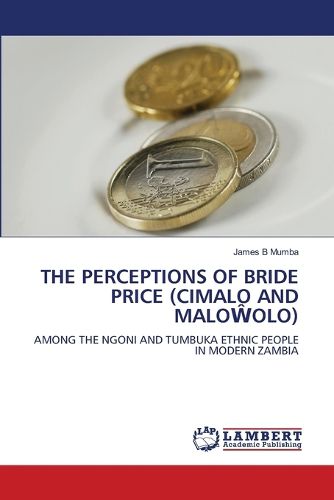Readings Newsletter
Become a Readings Member to make your shopping experience even easier.
Sign in or sign up for free!
You’re not far away from qualifying for FREE standard shipping within Australia
You’ve qualified for FREE standard shipping within Australia
The cart is loading…






Bride price is one major requirement in many societies for a boy to marry. Using the case study of the Ngoni and Tumbuka ethnic tribes in Eastern province of Zambia, the book shares the perceptions and attitudes of the people towards bride price in contemporary times. Bride price is still an essential component of marriage among the Tumbuka and Ngoni people. The book highlights that Ngoni and Tumbuka people understand Cimalo and Malowolo (bride price) as material items or other animals, or money paid by the groom to the bride's family in exchange for the bride with money taking center stage in current times. Both positive and negative attitudes towards bride price changing due to capitalist dynamics. However, most participants had negative attitudes towards bride price because of its contribution to marriage instability in homes, gender inequalities among couples, continued devaluing of a woman as a lesser partner in marriage, GBV, divorces, commercialization, and emotional pressure for men to mobilize resources in the present times. With a lot of negative aspects, the book recommends to government and traditional leaders to relook into bride price system in modern Zambia.
$9.00 standard shipping within Australia
FREE standard shipping within Australia for orders over $100.00
Express & International shipping calculated at checkout
Bride price is one major requirement in many societies for a boy to marry. Using the case study of the Ngoni and Tumbuka ethnic tribes in Eastern province of Zambia, the book shares the perceptions and attitudes of the people towards bride price in contemporary times. Bride price is still an essential component of marriage among the Tumbuka and Ngoni people. The book highlights that Ngoni and Tumbuka people understand Cimalo and Malowolo (bride price) as material items or other animals, or money paid by the groom to the bride's family in exchange for the bride with money taking center stage in current times. Both positive and negative attitudes towards bride price changing due to capitalist dynamics. However, most participants had negative attitudes towards bride price because of its contribution to marriage instability in homes, gender inequalities among couples, continued devaluing of a woman as a lesser partner in marriage, GBV, divorces, commercialization, and emotional pressure for men to mobilize resources in the present times. With a lot of negative aspects, the book recommends to government and traditional leaders to relook into bride price system in modern Zambia.